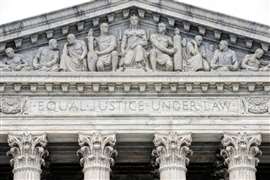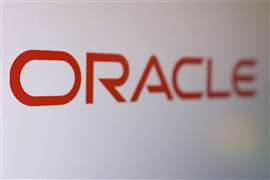Read this article in Français Deutsch Italiano Português Español
Chevron doctrine overturned: opinions divided about SCOTUS ruling that affects regulatory oversight
09 July 2024
The 40-year-old precedent allowed judges to defer to regulatory agencies to interpret ambiguous terminology in laws.
In its June 28 ruling on Loper Bright Enterprises v. Raimondo, the U.S. Supreme Court overturned a 1984 legal precedent colloquially referred to as the Chevron doctrine. Named for another Supreme Court case, Chevron U.S.A. Inc. v. Natural Resources Defense Council Inc., the doctrine held that in the event a law was ambiguous, courts could defer to a reasonable interpretation of the law by federal regulatory agencies.
The Associated Press reported that conservatives and business groups have long targeted the doctrine, claiming it gave too much power to the executive branch. Rolling back the Chevron doctrine will make it more difficult for federal agencies to defend their regulations, the article said.
 Detail of the U.S. Supreme Court building facade. (Photo: W. Scott McGill via Adobe Stock)
Detail of the U.S. Supreme Court building facade. (Photo: W. Scott McGill via Adobe Stock)
“The Chevron Doctrine comes into play when a federal agency’s interpretation of a statute is challenged,” said Brooke Zentmeyer, an associate with the Columbus, Ohio-based law firm Vorys, Sater, Seymour and Pease, in a post on the firm’s website. “For example, if an agency, such as the USEPA [U.S. Environmental Protection Agency], issues a regulation that defines a term in one of its governing statutes, such as the Clean Air Act, and the regulation gets challenged, a court would use the Chevron Doctrine to decide the case.”
Some organizations lauded the ruling. In a press release, the National Association of Manufacturers (NAM) called the Chevron doctrine “unworkable and incoherent.”
“Today’s ruling is a game changer for manufacturers, as Chevron was at least partly to blame for the unpredictability and overreach that have become synonymous with the modern regulatory state,” said Linda Kelly, chief legal officer for NAM. “We are hopeful that this marks the end of an overbearing regulatory system that had become complex, and compliance in many cases that was contradictory from agency to agency.”
Chris Netram, managing vice president of policy for NAM, added that manufacturers had faced a “regulatory onslaught” that the ruling was bringing to an end.
“The EPA, SEC [Securities and Exchange Commission] and DOL [U.S. Department of Labor] — the aggressive nature of rulemaking and enforcement actions that exceed authority come from the alphabet soup of regulators. The NAM has been successful in fighting key rules in court, and today’s decision gives us the ability to challenge even more actions while ensuring future agency actions do not exceed the authority mandated by Congress.”
Wisconsin trade association Wisconsin Manufacturers & Commerce (WMC) said in a press release that Chevron had allowed unelected regulatory agency officials to act beyond the scope of their authority.
“The decision will rightfully return lawmaking to the elected representatives in Congress, instead of leaving it in the hands of unaccountable bureaucrats,” said Kurt R. Bauer, president and CEO of WMC. “This is an important corrective step to rein in the suffocating effect of the regulatory state on Wisconsin businesses.”
Many lawmakers issued statements that praised the decision on similar grounds.
U.S. Senate Republican leader Mitch McConnell of Kentucky said the ruling made it clear that governmental authority does not rest with unelected agencies.
“Congress’ willingness to outsource legislative responsibilities to the most unaccountable corners of the executive branch weakened both its own Article One powers and the link between the American people and a responsive federal government,” he said. “The days of federal agencies filling in the legislative blanks are rightly over.”
Sen. Lisa Murkowski (R-Alaska), the ranking member of the Subcommittee on Interior, Environment and Related Agencies, said, “For too long, agencies have amassed power to regulate and interpret the law as they please, with few mechanisms available to rein in their excesses and overreach.”
Republican Senator Ted Cruz of Texas, who is the ranking member of the Commerce, Science and Transportation Committee, said that Chevron allowed for “a massive expansion of the regulatory state. The Court did the right thing in returning decision-making to elected members of Congress the way the Constitution envisioned it.”
Rep. Cathy McMorris Rodgers (R-Wash.), chair of the House Energy and Commerce Committee, said, “The Supreme Court’s ruling today will help restore the proper balance of power as the Founders envisioned it. Moving forward, major decision-making authority will no longer automatically be deferred to unelected, unaccountable bureaucrats.”
Not all reacted positively to the ruling, with many citing the expertise federal agencies bring to the policymaking process.
The Natural Resources Defense Council (NRDC), which is an environmental watchdog and was a party to the original Chevron case, said the ruling will limit the abilities of federal agencies such as the EPA to implement and enforce regulations.
“Instead of deferring to the expertise of agencies on how to interpret ambiguous language in laws pertaining to their work, federal judges now have the power to decide what a law means for themselves,” said Jeff Turrentine in a commentary on the NRDC website. “As a result, despite not being accountable to the people, judges will now be able to expand their role into the realm of policymaking.”
In writing her dissent, which was joined by Justices Sonia Sotomayor and Ketanji Brown Jackson, Justice Elena Kagan said Chevron had been the correct approach.
“This Court has long understood Chevron deference to reflect what Congress would want, and so to be rooted in a presumption of legislative intent. Congress knows that it does not—in fact cannot—write perfectly complete regulatory statutes. It knows that those statutes will inevitably contain ambiguities that some other actor will have to resolve, and gaps that some other actor will have to fill. And it would usually prefer that actor to be the responsible agency, not a court.”
With its ruling, Kagan said the Supreme Court was replacing judicial humility with hubris.
“In one fell swoop, the majority today gives itself exclusive power over every open issue — no matter how expertise-driven or policy-laden — involving the meaning of regulatory law. As if it did not have enough on its plate, the majority turns itself into the country’s administrative czar.”
Senator Edward J. Markey (D-Mass.), chair of the Subcommittee on Clean Air, Climate, and Nuclear Safety, blamed the ruling on “activist, far-right justices” seeking to curry corporate favor.
“Now, with this ill-advised decision, judges must no longer defer to the decisions about Americans’ health, safety, and welfare made by agencies with technical and scientific expertise in their fields.”
Rep. Lou Correa (D-Calif.), ranking member of the House Administrative State, Regulatory Reform and Antitrust Subcommittee, also expressed concern about the lack of scientific expertise in the Supreme Court.
“While the Court has constitutional authority to interpret the law, it has no special expertise in the many complex issue areas in which Congress asks agencies to regulate. As Chevron recognized, the appropriate role of the courts is to defer to the agency’s judgment when it is reasonable.”
Sudip S. Parikh, CEO of the American Association for the Advancement of Science (AAAS), and Theresa Harris, program director for the AAAS Center for Scientific Responsibility and Justice, said in a Facebook post, “The U.S. Supreme Court’s rulings to overturn the Chevron doctrine will thrust federal agencies’ decision-making into uncharted waters and fundamentally change the way scientific information is used in federal policymaking.”
Sen. Bernie Sanders (I-Vt.), who is a member of the Energy and Natural Resources Committee, said in a press release, “With the Chevron case, they [the Supreme Court] have made it far more difficult for the government to address the enormous crises we face in terms of climate change, public health, workers’ rights, and many other areas.”
When reached for comment, an EPA spokesperson referred Power Progress to the White House, which blasted the Supreme Court’s ruling in a press release.
“Today’s Supreme Court decision is the latest power grab by a court that seems hell-bent on doing the bidding of polluters and deep-pocketed special interests,” the White House said. “This ruling is part of a larger attack on the government’s ability to protect Americans’ health and safety.”
POWER SOURCING GUIDE
The trusted reference and buyer’s guide for 83 years
The original “desktop search engine,” guiding nearly 10,000 users in more than 90 countries it is the primary reference for specifications and details on all the components that go into engine systems.
Visit Now
STAY CONNECTED




Receive the information you need when you need it through our world-leading magazines, newsletters and daily briefings.
CONNECT WITH THE TEAM















